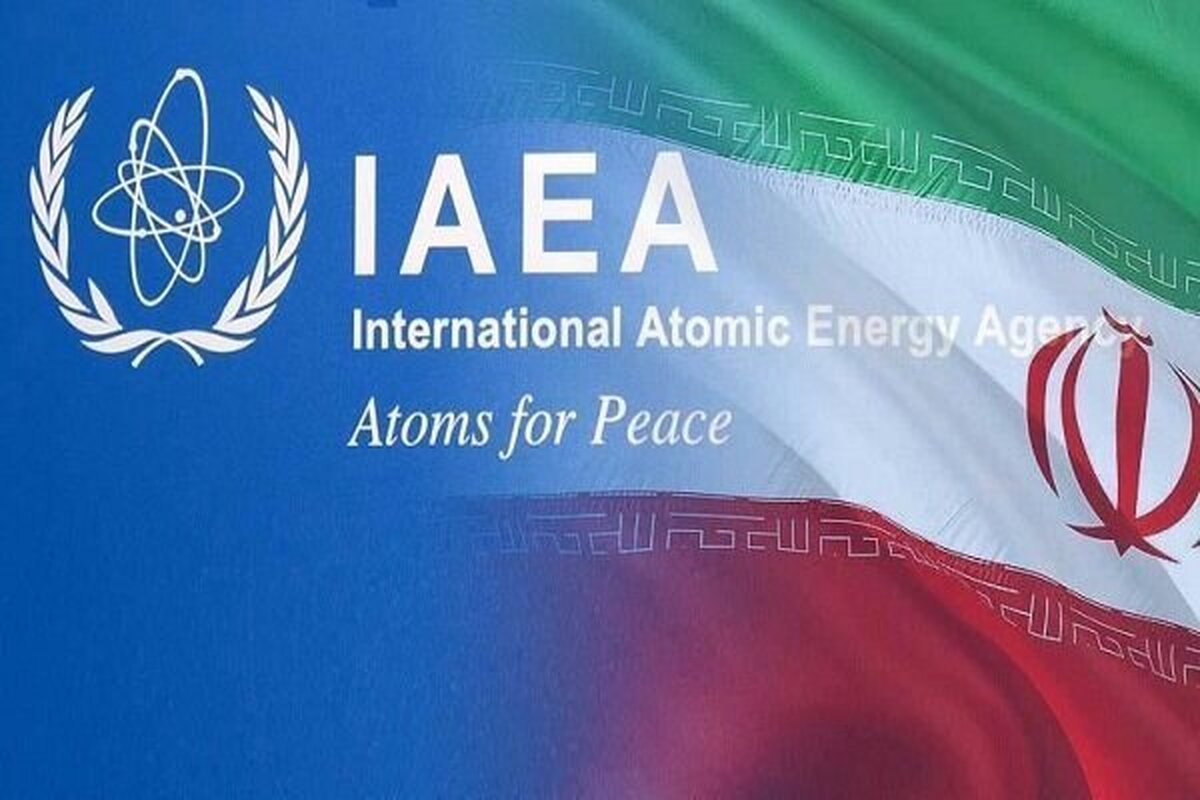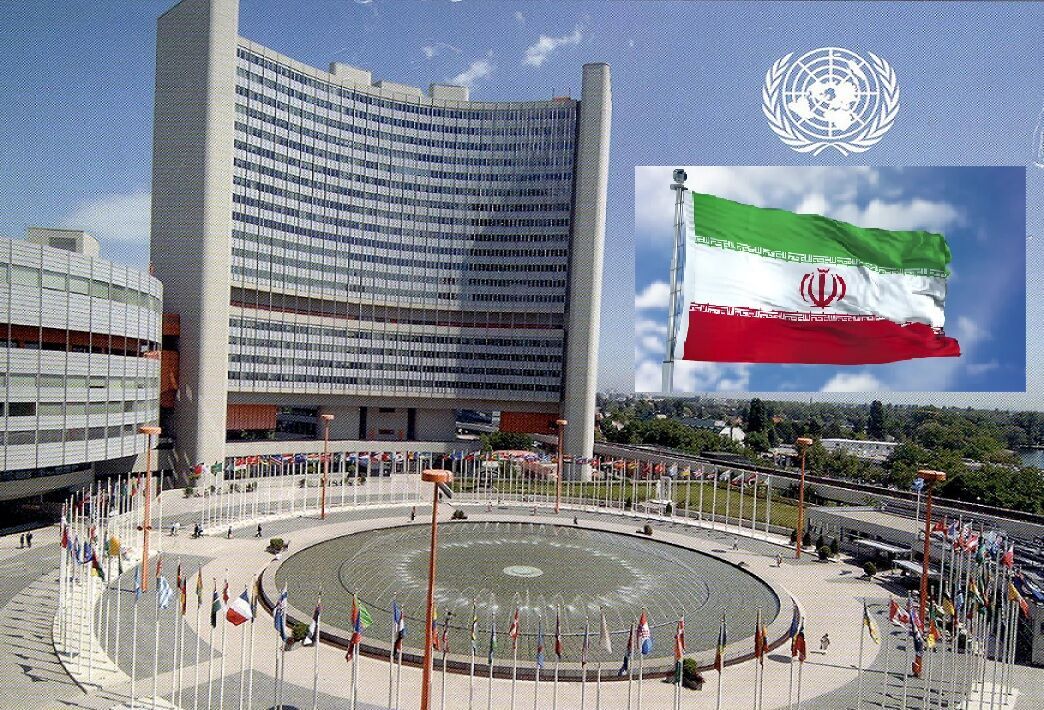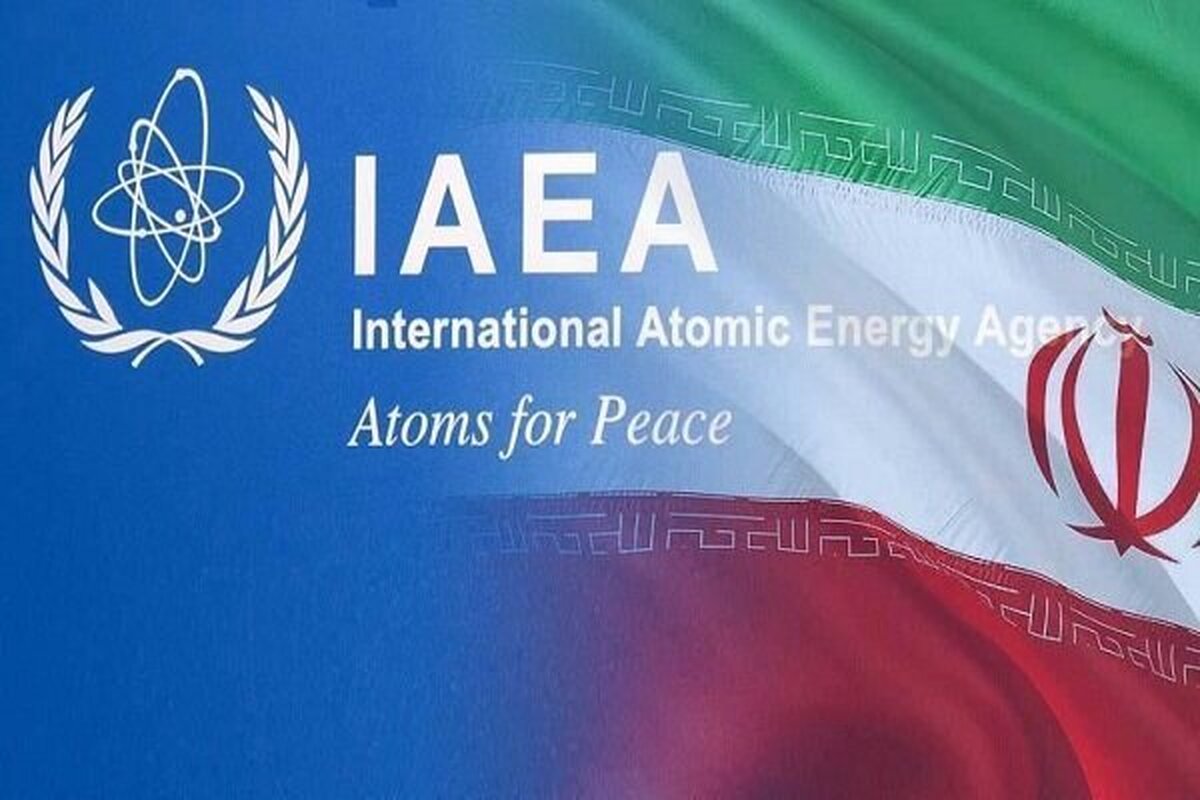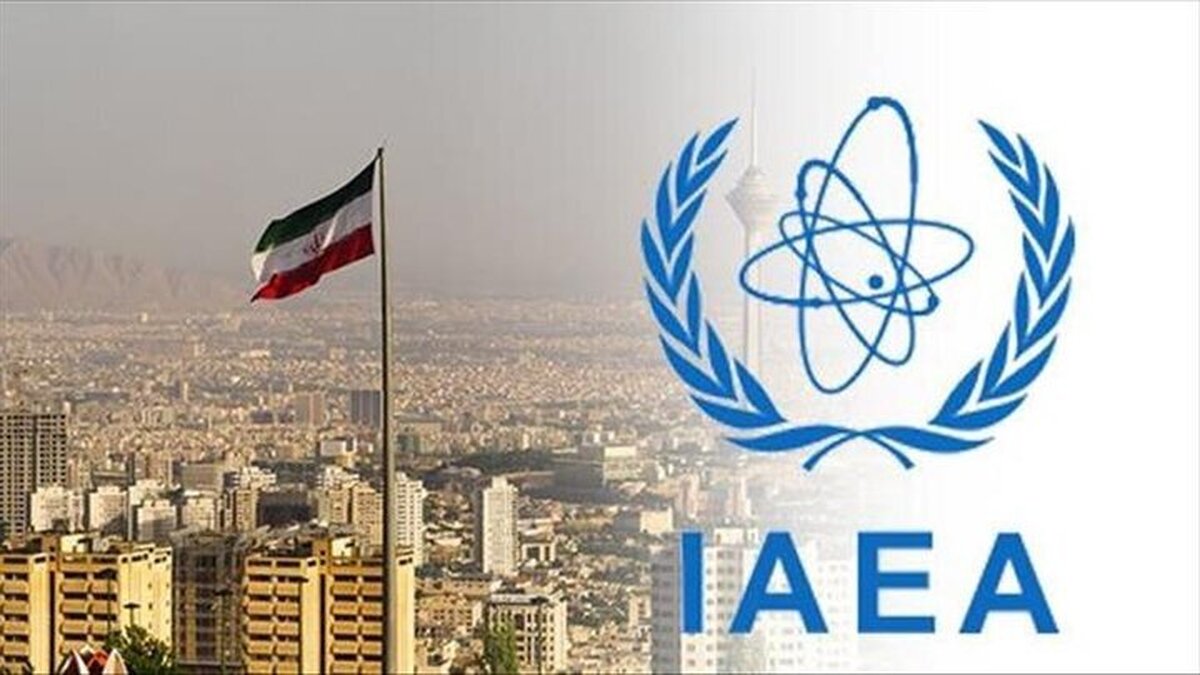
Iran submits note to IAEA after reports to Board of Governors

The Iranian mission to the Vienna-based organizations issued an explanatory note about the recent reports that Director General of the International Atomic Energy Agency Rafael Grossi has given to the IAEA Board of Governors.
EghtesadOnline: What follows is the text of Iran’s explanatory note about Grossi’s reports to the IAEA Board of Governors entitled “NPT Safeguards Agreement with the Islamic Republic of Iran” as well as “Verification and Monitoring in the Islamic Republic of Iran in Light of United Nations Security Council Resolution 2231 (2015)”:
A. General Comments
1. The Islamic Republic of Iran has complied fully with its obligations including Comprehensive Safeguards Agreement (INFCIRC/214) and has done its utmost to enable the Agency to effectively carry out its verification activities in Iran, including C/S measures on Iran’s nuclear material and activities.
2. The separation of issues divided under two different reports has not been duly respected. Some JCPOA related matters have been repeated in the NPT Safeguards report and vice versa, some NPT Safeguards related matters can been seen in the JCPOA report. As an example, verification and monitoring activities related to centrifuges rotor and bellows manufacturing workshops, should have been defined only in the scope of JCPOA report.
3. Following the United States’ unlawful withdrawal from the JCPOA in May 2018 and failure of the E3/EU to fulfill their commitments, in exercising of its rights under paragraphs 26 and 36 of the JCPOA, Iran had ceased all voluntary transparency measures beyond its Comprehensive Safeguards Agreement (CSA), including implementation of Modified Code 3.1 as specified in para. 13 of the preamble as well as in para. 65 of Annex I to the JCPOA in February 2021.
4. Iran's decision to cease performing its commitments under the JCPOA was fully in accordance with its inherent rights under paragraphs 26 and 36 of the JCPOA and in response to the US unlawful withdrawal from the JCPOA, coupled with the E3's inability to uphold their commitments. This blatant fact, by no means, can constitute a basis for E3 to refrain from implementing their commitments.
5. The E3's decision to refrain from implementing their sanctions-lifting commitments specified in Paragraph 20 of Annex V of the JCPOA on Transition Day (18 October 2023) was an unlawful act and another explicit instance of significant non-performance of their commitments in violation of both the JCPOA and the United Nations Security Council Resolution 2231.
6. On the issue related to the so-called two locations, it should be underlined that the origin of the issue goes back to the allegations primarily posed by an ill-intended third party, namely the Israeli regime, which does not have a single commitment to any WMD instruments, including in particular NPT, and repeatedly threatens to attack Iran’s nuclear facilities and installations devoted to peaceful purposes, contrary to the numerous GC resolutions, including in particular 407, 1983; 444, 1985; 475, 1987 and 939, 1990, none of which has been respected by this regime. The regime has been so rude that most recently has threatened Iran to nuclear attack. Netanyahu’s statement which was broadcasting live across the world saying that "Iran must face a credible nuclear threat" and his heritage minister saying that “dropping a nuclear bomb would be one of the options to attack Hamas is a clear violation of international law.
7. From legal point of view, the assessments of the Agency in its report is based on unreliable information and unauthentic documents provided by a regime which not only constantly plotting against Iran's relation with the Agency, but also committing sabotages, attack, and threat of attack against Iran, along with its brutal policy and genocide against innocent people of Gaza, as recognized now by the international community.
8. In light of further cooperation with the Agency, in recent years, Iran has implemented voluntary measures in the framework of several Joint Statements including the 4th March 2023.
9. Most recently, constant political pressure exerted by few certain States has led to the point that technically resolved issues are later altered in the Agency’s reports contrary to what have been agreed upon. These pressures which are politically motivated have impeded the Agency to carry out its professional and impartial role. The Director General on different occasions in his reports expresses sentiment by using unconventional expressions contrary to the technicality and objectivity of such reports, which needs to be avoided.
B. Comments on the NPT Safeguards report (GOV/2024/29), Background:
10. With respect to paragraph 3 of the report (GOV/2024/29), it has to be noted that time and again the Islamic Republic of Iran has reiterated that there has never been any location to be declared under the CSA, including through INFCIRC/1159 dated 23 November 2023, INFCIRC/1131 dated 14 September 2023, INFCIRC/996 dated 7 June 2022, INFCIRC/967 dated 3 December 2021, as well as INFCIRC/1183 dated 7 March 2024. The Agency's claim of undeclared locations has not been supported by authentic safeguards-relevant information document and evidences.
11. On para. 4, once again Iran stresses that there have been no any nuclear material and activity in so called location “Lavisan-Shian”. This location, as it has been stipulated in footnote 6 of the report, has gone under Agency’s extensive verification activities including Complementary Access, accordingly the matter was closed.
12. On paras. 5 and 6, despite there have not been any nuclear material and activity needed to be declared, Iran has so far provided the Agency with its explanations. However, voluntary measures could be considered within the modality to be agreed upon in line with the 4th March 2023 Joint Statement.
13. On para. 6 of the report “...the Agency’s assessment of the undeclared nuclear related activities that were undertaken by Iran at ‘Marivan’ remains unchanged” as it was said in paragraph 6 above, the Agency's assessment should not be based on unreliable information and unauthentic documents. Furthermore, there is no added value in referring to some previous arguments confirmed by subsequent information which led to resolution of this issue as specified in the previous Director General’s report (GOV/2023/26). However, the details have been reflected in paragraph 8 of INFCIRC/1094 dated 7 June 2023.
C. Comment on the Section C of the Report (GOV/2024/29):
14. On para. 7: “Varamin”, the following facts need to be considered:
- As it was frequently explained by Iran, there has not been any undeclared location required to be declared under the CSA.
- The allegation of existing “undeclared pilot-scale plant used between 1999 and 2003” is not supported by reliable information and authentic documents, rather is based on false and fabricated documents provided by ill-intended entity.
- The Agency's reference to a sole poor quality satellite imagery for assessing that “... containers removed from Varamin were eventually transferred to Turquzabad ...” is NOT adequate and correct; there are thousands of similar containers moving around the country. Claim of movement of one container from a location to another, could not be a sound judgement based on such unprovable and imprecise evidence.
15. On para. 8: “Turquzabad” the following facts need to be considered:
- The Agency's assessment is not based on authentic information and evidences. Turquzabad is actually an industrial place encompassing various kinds of warehouses and depots for storing detergents, chemicals, foodstuff, fabrics & textiles, vehicles tire and parts, tubes & joints, and some industrial scraps.
- As it has been frequently said, the location in question is industrial scraps storage, movement of containers is a usual activity in that area. Transfer of a container from one area to another which is a usual activity cannot be considered as a solid ground for such allegation.
- As a result of very intensive investigations carried out into the background of activities of this location, except sabotage as the most probable indication, no any other reason has been found for the presence of such particles.
- On the Agency's incorrect assumption of intact removal of containers from the location, the explanations indicating incorrectness of the Agency's assumption, has already been provided to the Agency. However, Iran expresses its readiness to extend the explanations within the modality to be agreed upon in line with the 4th March 2023 Joint Statement.
16. On para.9: The Agency on its previous reports had referred to the so called four undeclared locations, requesting information, which was later provided by Iran and consequently the number of the locations was reduced by the Agency to two. Therefore, the false assumption of undeclared locations which was based on unauthentic information, as a result of Iran’s extensive cooperation within the framework of the Joint Statement, was corrected. The remaining two locations could also be addressed through mutual cooperation within the modality to be agreed upon in line with the 4th March 2023 Joint Statement.
C.2. Discrepancy in nuclear material balance
17. On para. 10, following has to be considered:
- The uranium metal arising from declared conversion experiments conducted at the JHL (IRL-), received at the Uranium Conversion Facility, UCF (IRK-), has been frequently verified by the Agency since 2003, including quarterly and yearly, led to satisfactory issuance of relevant 90(a) and 90(b) statements by the Agency.
- Iran in a letter dated 9 August 2023, in response to the Agency’s inquiry, stressed that the mentioned discrepancy emerged at UCF (IRK-) was due to a different and irregular process of recovering uranium from the waste material, known as “dirty waste” containing various kinds of unknown elements as impurities. Basically, the difference of material between the starting and ending of recovery process is technically predictable and unavoidable. Although the difference emerged in ending point of recovery was accepted by Iran, the Agency was convinced that the amount initially claimed by the Agency was considerably less than what which has been announced earlier. To this end, several technical discussions on the subject were held between the Agency and Iran. In a technical discussion on 8 November 2023 in Vienna, Iran provided a presentation, based on firm technical documents and proofs, regarding detailed recovery process and its relevant accountancy calculation in IRK- for U-Metal dirty waste dissolution. To resolve this issue, it was agreed in the meeting that the Agency conduct additional verification activities at UCF in earliest possible time.
- The Agency’s further verification activities in this regard were conducted on 21, 22 November 2023, 3, 4 December 2023 and 20 December 2023. During these follow-up activities at IRK-, the operator provided details of accountancy calculations for U-Metal dirty waste recovery. Despite the agreement reached with the Agency, and confirmation received dated 2023-12-21for providing assessment including the analysis results of the environmental and destructive assay samples collected at the IRK- by February 2024, the results of these verifications has yet to be shared with Iran. However, the Agency accepted that the amount of SRD was far less than its initial evaluation.
18. On para. 11, it should be mentioned that:
- During the Agency’s DDG and AEOI’s Vice-President meeting in Tehran on 29 January 2024 and as a result of a proposal suggested by the DDG, technical discussion was concluded. In his proposal, DDG suggested that without continuing the technical discussion, a correction to the IRK- accountancy records with the agreed amount be submitted to the Agency by Iran, the issue would be resolved without any reflection to IRL-. Accordingly, the required corrected nuclear material accounting reports were provided to the Agency through Iran’s letter dated 7 February 2024. The corrected nuclear material accounting reports indicate that all declared amount of uranium contained in the solid waste, sent from JHL to UCF for dissolution, was received at the UCF, and the mentioned shortfall only pertained to UCF (IRK-).
- Pursuant to this agreement, Iran corrected relevant accountancy records, and the Agency submitted the modified statements for IRK- and IRL- facilities. The Agency in its 90(a) statement dated 2024-02-21 stipulated that the discrepancy in the amount of uranium contained in the solid waste sent from JHL to UCF has been resolved. This resolution has also been reflected exactly as “resolved” in footnote 23 of the JCPOA report (GOV/2024/7 dated 26 February 2024). BUT surprisingly without giving any reason, at the same day, the word "resolved" has been changed to "rectified"(para. 15 of GOV/2024/8). Subsequently the reports were unprofessionally, without issuing a corrigendum to the report, re-issued on the 2 March 2024. There is no justifiable reason for such unwarranted deviation of agreement and hastily changing of the distributed reports. This approach highlights external political pressures which undermines the credibility of the Agency.
19. On para. 12: The Agency in its letter dated 22 May 2024 requested Iran to re-evaluate the uranium metal production experiments that has been verified continuously since 2003. This request has no legal ground and is contrary to the mutual agreement of 29 February 2024. In this regard, the following points need to be considered:
- As explained above, the uranium metal at the JHL had been under Agency’s continuous C/S measures (seals) while being retained at JHL (IRL-) facility and has been frequently verified by the Agency since 2003, for which the relevant 90(a) and 90(b) statements have been subsequently issued by the Agency with satisfactory endorsement. It should be noted that there has not been any activity performed on this material that may change its status.
- The R&D project for U metal production from UF4 has been declared to the Agency in 2003 and has been verified in depth in 2003-2004 and later in 2009 and eventually in 2014. In this R&D project, in addition to fine products, some different types of waste such as scrap, heterogeneous waste, etc. were produced. All of these materials have gone under Agency’s different verifications.
- The Agency in its statement dated 2014-02-12 clearly assessed that “all declared nuclear material has been accounted for and that there were no indication of the undeclared presence, production or processing of nuclear material”. The Agency further in its report (GOV/2015/68) mentioned that “...The Agency re-evaluated this information in 2014 and assessed that the amount of natural uranium involved was within the uncertainties associated with nuclear material accountancy and related measurements”.
- The material being received by UCF (IRK-) from JHL (IRL-) was under the Agency’s seals, verified by the Agency and the operator and evidently, the shipper data was accepted. Since the receiving MBA (IRK1) has accepted the shipper data, there is not any shipper-receiver-difference (SRD) to be reported. After recovery in process area (IRK2), verification of the material was performed at the UCF and the shortfall which was due to the processing of the material, cannot be considered as SRD. The shortfall also cannot be considered a cause for changing the accounting reports of the origin facility JHL (IRL-).
- Taking into account that the mentioned shortfall was only identified in the end of the recovery process at UCF (IRK-), and not at the receiving point of this facility, thus, it definitely cannot be attributed to the origin facility, i.e. Jaber Ibn Hayan Multipurpose laboratory (IRL-).
- The letter of 22 May 2024 referred to in the DG report has been received by Iran only few days before releasing the report. To avoid any ambiguity and misleading, the Agency’s letter should not have been hastily reflected in the report without Iran’s answer. Taking into consideration that the material balance of the uranium involved in uranium metal production experiments conducted at JHL was concluded in year 2014 (see above statement 90(b)), reopening a closed matter which has been concluded by the Agency after an exhausted procedure, would undoubtedly jeopardize the credibility of the Agency’s verification system including its accounting statements.
20. On Modified Code 3.1:
- Acceptance of implementation of Modified Code 3.1 was among the measures reflected in para. 13 of the preamble as well as in para. 65 of Annex I to the JCPOA. Following the US withdrawal from the JCPOA and failure of the E3/EU to fulfill their commitments under the agreement, Iran, in exercising its rights under para 26 and 36 of the JCPOA, decided to fulfill obligations merely under its CSA. However, acting in good faith and in light of understanding reached with the Director General, Iran has already provided general information on planning of new facilities (including Iran Hormuz, Sistan-Baluchestan and…) and has stated that relevant safeguards information will be provided to the Agency in due time.
- The DG in his report has referred to the uniqueness of Iran’s performance of Modified Code 3.1 (Iran remains the only State with significant nuclear activities in which the Agency is implementing a comprehensive safeguards agreement but which is not implementing the provisions of the modified). In this regard, uniqueness of the JCPOA needs also to be reiterated which is characterized by high frequency of the inspections, confidence-building and transparency measures beyond the CSA and the Additional Protocol. This characteristic of the agreement made Iran to be the only State with having a robust verification regime.
- According to the Law passed by Islamic Consultative Assembly (Majlis) entitled "Strategic Action Plan to Lift Sanctions and Protect Iranian Nation's Interests", Iran, in exercising its rights under para 26 and 36 of the JCPOA, decided to fulfill obligations merely under its Comprehensive Safeguards Agreement. One should not expect that while the unjustified unilateral sanctions still continue, Iran will fully implement its commitments under the JCPOA
D. Comment on the Section D of the Report (GOV/2024/29) Joint Statement (paras. 17-20, 22 and 34)
21. Two important elements of the 4th March 2023 Joint Statement should be taken into considerations, i.e. the framework of the CSA and the agreed modality. The Islamic Republic of Iran acting in good faith and even pending the agreement to be reached out on the modalities, allowed the Agency to install 9 surveillance cameras. Furthermore, Iran allowed the Secretariat to successfully service the cameras and store the recorded data. The progress achieved arising from the mutual cooperation with the Agency needs to be recognized by the Board of Governors.
22. It is obvious that further implementation of the Joint Statement requires Iran and the Agency to discuss on modalities to be mutually agreed upon.
23. On para. 21, 27 and 33 of GOV/2024/29 as well as paras. 21, 22 and 33 of GOV/2024/26 regarding exercising Iran’s sovereign right of de-designation of few inspectors, the followings need to be taken into consideration:
- As outlined in Article 9(a)(ii) of the (CSA) between Iran and the Agency (INFCIRC/214), it is unequivocally established that Iran retains the Sovereign prerogative to object to the designation of Agency inspectors, not only at the time of the proposed designation but also at any other time after designation has been made.
- Currently, total number of 120 designated inspectors is available to the Agency for the Islamic Republic of Iran. This clearly shows Iran’s willingness to enable the Agency to carry out its mandate benefiting from experienced various inspectors.
- Exertion of this right, by no means impacts, directly or indirectly, the ability of the IAEA to conduct its inspections in Iran.
- While the Islamic Republic of Iran accepted the designation of 14 new proposed inspectors of the Agency on two occasions (October 2023 and February 2024), but unfortunately, this matter was not faithfully reflected in the report.
24. As it has been mentioned in para. 23 and 24 of GOV/2024/29, during the visit of the DG to Tehran and Isfahan (for participation in the International Conference on Nuclear Science and Technology) and later visit of the DDG to Tehran, discussions were held with the different authorities including the late Foreign Minister H.E. Dr. Amirabdollahian, Deputy Foreign Minister for Political Affairs, H.E. Dr. Baqeri Kani as well as Vice President and Head of the Atomic Energy Organization of Iran, H.E. Mr. Eslami and his Deputy for International, Legal and Parliamentary Affairs. During discussions both sides while exchanging view on different issues including implementation of the Joint Statement, agreed to continue their consultations on a proper time after prevailing special circumstances as a result of martyrdom of the President, Foreign Minister and other companions in an aerial incident would be tackled.
25. On para. 26, the public statement; It has been officially stated in several occasion that nuclear weapon has never been in the defense doctrine of the Islamic Republic of Iran. Therefore, there is no ground for any interpretation of the public individual statements. The Director General is not expected to make safeguards conclusion or statement based on the individual’s views. This conclusion neither professionally nor legally is justified. These public statements as misquoted several times and does not correspond to the official position of Iran, if any, could not be abused by others to question Iran’s commitments under the NPT.
E. Comments on the report (GOV/2024/29), Summary
26. The Islamic Republic of Iran’s nuclear activities are fully peaceful and the allegations created by the ill-intended third party are not authentic and has no justification.
27. Iran voluntarily granted access and provided information and clarification to the Agency on claimed locations. This was despite the Agency did not present authentic documents to Iran concerning the claim on "undeclared nuclear material and nuclear-related activities", and Iran was not and is not obliged to respond the Agency's requests about unauthentic and fabricated documents. However, unfortunately, the Agency considers all fabricated documents and fake information provided by the Israeli regime as authentic. This has led the Agency to conclude wrong and unreliable assumption accordingly.
28. In respect to the de-designated inspectors, the Agency is needed to respect fully Iran’s rights under the CSA including Article 9. Any attempt to compromise the Member States’ sovereign rights in violation of respective CSA is unacceptable and shall not make a precedent that would jeopardize the rights of Member States.
29. During the visit of the DG and the DDG to Iran, meeting with high authorities, both sides while exchanging view on different issues including implementation of the Joint Statement agreed to continue their consultations on a proper time once prevailing special circumstances arising from martyrdom of the President, Foreign Minister and other companions in an aerial incident would be tackled.
30. As mentioned earlier, it has been officially stated in several occasion nuclear weapon has no place in the defense doctrine of the Islamic Republic of Iran. Therefore, there is no ground for any misinterpretation of the public individual statements. The Director General is not expected to make safeguards conclusion or statement based on the individual’s views. Any conclusion based on public statement is neither professionally nor legal.
Conclusion
31. The Islamic Republic of Iran has so far rendered its full cooperation under the CSA to the Agency. It has to be re-emphasized that all Iran's nuclear material and activities have been completely declared and verified by the Agency.
32. The Islamic Republic of Iran rightfully expects that the Agency conducts its reporting on verification activities in Iran based on the principles of impartiality, professionalism, and objectivity.
33. It has to be re-emphasized that all Iran's nuclear material and activities have been completely declared to the Agency and has gone through a very robust verification system. Although, the Islamic Republic of Iran has no obligation to respond to the Agency's questions based on fabricated and unauthentic documents, however, on a voluntary basis and in a cooperative manner, Iran provided all necessary information, supporting documents and granted accesses requested by the Agency.
34. The Islamic Republic of Iran, once again, stresses the importance and value of cooperation extended to the Agency. This constructive cooperation should not be undermined by short-sighted political interests. Accordingly, the Agency has the responsibility to show wisdom in addressing such issues in a diligent manner in order to avoid distorting the bigger picture on cooperation between Iran and the Agency. / Mehr




